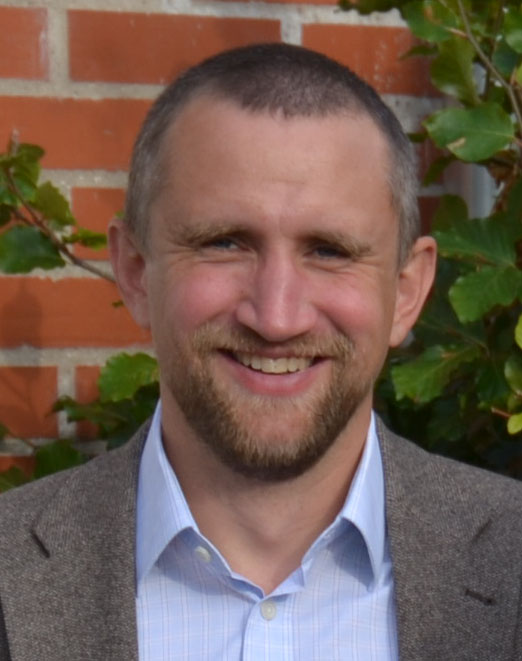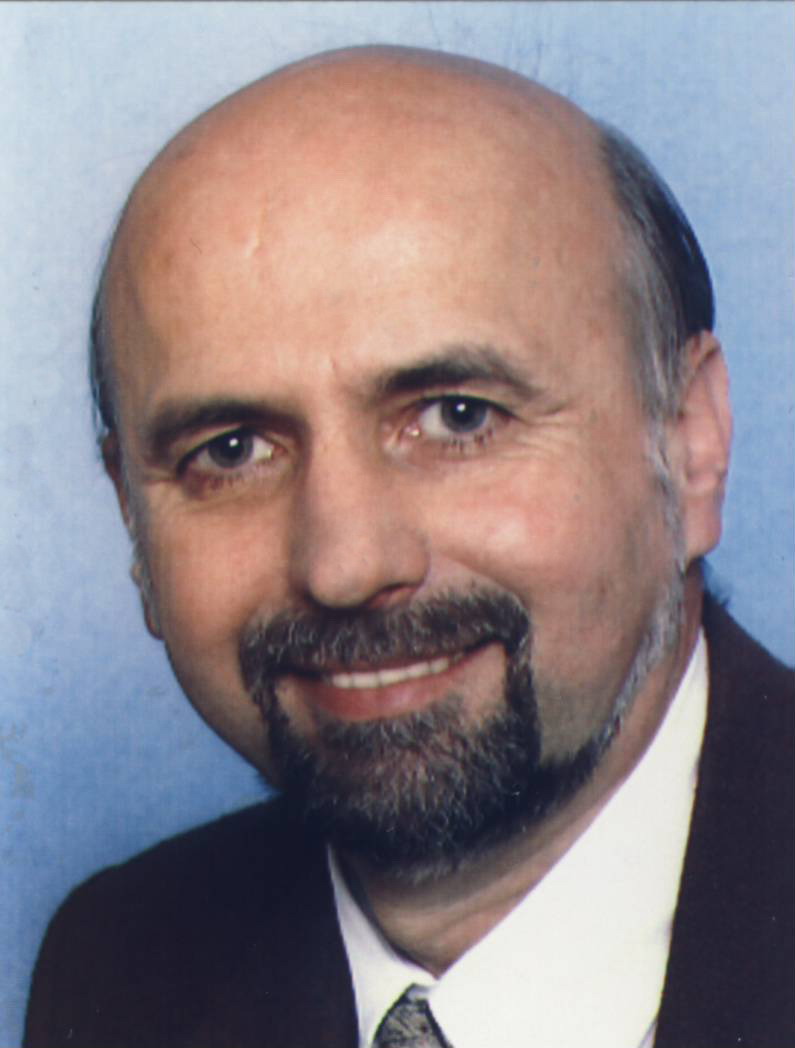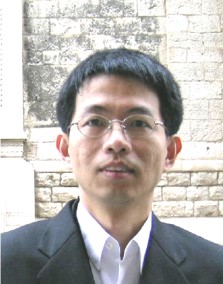Search Papers:
The keynote information for the 2nd World Congress on Electrical Engineering and Computer Systems and Science (EECSS'16) is as follows:
MHCI'16 Keynote Speakers:
Dr. Stephen Brewster

Stephen Brewster is a Professor of Human-Computer Interaction in the School of Computing Science at the University of Glasgow. He got his PhD in auditory interfaces at the University of York. He leads the Multimodal Interaction Group in Glasgow, which is very active and has a very strong international reputation. His research focuses on multimodal HCI, or using multiple sensory modalities and control mechanisms (particularly audio, haptics and gesture) to create a rich, natural interaction between human and computer. His work has a strong experimental focus, applying perceptual research to practical situations. A long term focus has been on mobile interaction and how we can design better user interfaces for users who are on the move. Other areas of interest include accessibility, wearable devices and in-car interaction. According to Google Scholar, he has 375 publications. He is a member of the SIGCHI Academy.
Topic of Keynote: Multimodal interaction - making the most of human capabilities in HCI
MVML'16 Keynote Speakers:
Dr. Henrik Aanaes

Dr. Henrik Aanaes is associate professor in computer vision at the Technical University of Denmark, from where he was also awarded his Ph.D. in 2003. His main scientific contributions are in 3D reconstruction from images, 3D geometry processing, satellite image fusion and image registration. Currently his primary research interests are in generating large high quality data sets for 3D vision, image based 3D content creation, and applying computer vision to manufacturing.
Topic of Keynote: Data from 3D Computer Vision
ICBES'16 Keynote Speakers:
Dr. Zhongping Chen

Dr. Zhongping Chen is a Professor of Biomedical Engineering and Director of the OCT Laboratory at the University of California, Irvine. He is a Co-founder and Chairman of OCT Medical Imaging Inc. Dr. Chen received his B.S. degree in Applied Physics from Shanghai Jiao Tong University in 1982, his M. S. degree in Electrical Engineering in 1987, and his Ph.D. degree in Applied Physics from Cornell University in 1993.
Dr. Chen’s research interests encompass the areas of biomedical photonics, microfabrication, biomaterials and biosensors. His research group has pioneered the development of functional optical coherence tomography, which simultaneously provides high resolution 3-D images of tissue structure, blood flow, and birefringence. These functional extensions of OCT offer contrast enhancements and provide mapping of many clinically important parameters. In addition, his group has developed a number of endoscopic and intravascular rotational and linear miniature probes for OCT and MPM imaging and translated this technology to clinical applications. He has led numerous major research projects funded by NIH, NSF, DOD, and DARPA, including several interdisciplinary research projects such as the NIH Biomedical Research Partnership (BRP) grant and NSF Biophotonics Partnership Initiative grant. Currently, he is the principal investigator of three NIH R01 grants. He has published more than 200 peer-reviewed papers and review articles and holds a number of patents in the fields of biomaterials, biosensors, and biomedical imaging. He was a WCU Scholar under the Word Class University Program at National Pusan University of South Korea.
Dr. Chen is a Fellow of the American Institute of Medical and Biological Engineering (AIMBE), a Fellow of SPIE, and a Fellow of the Optical Society of America.
Topic of Keynote: Acoustic Radiation Force Optical Coherence Elastography
Prof. Bart M. ter Haar Romeny

Bart ter Haar Romeny (1952) is professor in biomedical image analysis. He has experience in biologically-inspired computer vision research and computer-aided diagnosis applications for over 25 years.
Bart M. ter Haar Romeny received the MSc degree in Applied Physics from Delft University of Technology in 1978, Ph.D. from Utrecht University in 1983 in biophysics. He became principal physicist of the Utrecht University Hospital Radiology Department. He was co-founder and associate professor at the Image Sciences Institute (ISI) of Utrecht University (1989-2001). From 2001, ter Haar Romeny is professor of Biomedical Image Analysis at the Department of Biomedical Engineering of Eindhoven University of Technology in the Netherlands, and since 2011 is appointed distinguished professor at Northeastern University, Shenyang, China. He closely collaborates with many industries and (national and international) hospitals and research groups. Currently he is project leader of the Sino-Dutch RetinaCheck project, a large screening project for early detection of diabetic retinopathy in Liaoning, China.
He authored an interactive tutorial book on multi-scale computer vision techniques, edited a book on non-linear diffusion theory in computer vision and is involved in (resp. initiated) a number of international collaborations on these subjects. He is author/co-author of over 200 refereed journal and conference papers, 12 books and book chapters, and holds 2 patents. He supervised 29 PhD students, of which 4 graduated cum laude, and over 140 Master students. He is senior member of IEEE, associate member of the Chinese Brainnetome consortium, visiting professor at the Chinese Academy of Sciences in Beijing, member of the Governing Board of IAPR, Fellow of EAMBES, and chairman of the Dutch Society for Pattern Recognition and Image Processing.
Topic of Keynote: What can we learn from the brain? Functional brain mechanisms for computer-aided diagnosis
EEE'16 Keynote Speakers:
Dr. Manfred Berroth

Manfred Berroth (M'91) was born in 1956. He received the Dipl.-Ing. degree from the University of the Federal Armed Forces, Munich in 1979 and the Dr.-Ing. degree from Ruhr-University, Bochum in 1991.
In 1987 he joined the Fraunhofer Institute for Applied Solid State Physics, Freiburg and worked on device modelling and circuit design. Since 1996 he is Professor at the University of Stuttgart. His main research interests are on design, modelling and characterization of electronic and optoelectronic devices and integrated circuits.
Topic of Keynote: Analog-to-Digital and Digital-to-Analog Converters for Data Rates of 100 Gb/s and Beyond
Dr. Ray-Guang Cheng

Ray-Guang Cheng (M'97–SM'07) received the B.E., M.E., and Ph.D. degrees in communication engineering from National Chiao Tung University, Hsinchu, Taiwan, in 1991, 1993, and 1996, respectively. From 1997 to 2000, he was with the Advance Technology Center, Computer and Communication Laboratories, Industrial Technology Research Institute (ITRI), Hsinchu, Taiwan, as a Researcher and a Project Leader. From 2000 to 2003, he was with BenQ Mobile System Inc., Taiwan, Hsinchu, as a Senior Manager of the Research and Development Division. He is currently a Professor with the Department of Electronic and Computer Engineering, National Taiwan University of Science and Technology (NTUST), Taipei, Taiwan. He holds IEEE Wireless Communication Professional (WCP) certification and 18 U.S. patents. He has authored more than 100 international journal and conference papers and more than 30 IEEE/3GPP standard contributions. His research interests include multihop wireless networks, massive machine type communications, and ultra-reliable and low latency communications.
Topic of Keynote: Overload Control for Massive Machine Type Communications

